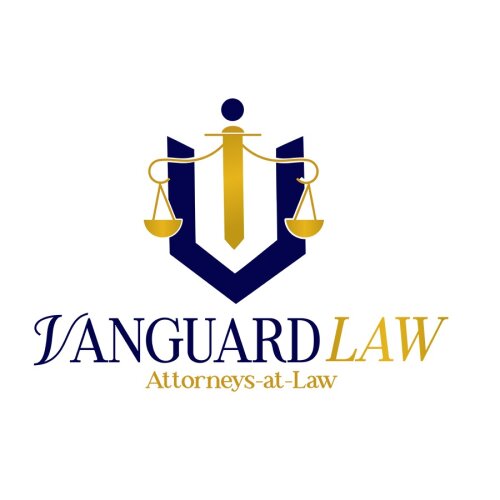Best Franchising Lawyers in Morant Bay
Share your needs with us, get contacted by law firms.
Free. Takes 2 min.
List of the best lawyers in Morant Bay, Jamaica
About Franchising Law in Morant Bay, Jamaica
Franchising in Morant Bay, a town in the parish of St Thomas, functions within the broader legal and commercial framework of Jamaica. There is no single statute that governs franchising in Jamaica. Instead, franchise relationships are governed by a mix of general commercial and civil laws - including contract law, company law, intellectual property law, employment law, tax rules, and consumer protection rules. Local requirements such as business registration, municipal permits and parish-level licences in Morant Bay also apply. Whether you are a franchisor, a potential franchisee, or an advisor, understanding how these different legal areas interact is essential to setting up, operating or enforcing a franchise in Morant Bay.
Why You May Need a Lawyer
Franchising transactions involve complex legal, commercial and operational issues. You should consider hiring a lawyer if you encounter any of the following situations:
- Reviewing or negotiating a franchise agreement - to protect your rights on fees, territory, term, renewal, termination, and post-termination obligations.
- Drafting franchise disclosure documents and operational manuals - to ensure intellectual property protection, clear obligations and compliance with Jamaican law.
- Protecting trademarks, trade dress and proprietary systems - to register marks and enforce IP rights in Jamaica.
- Structuring the business - choosing the right corporate form, shareholder agreements, or whether to operate through a local company or branch.
- Employment and labour issues - setting up compliant employment contracts, handling labour disputes, and understanding social security and payroll obligations.
- Tax planning and compliance - advising on income tax, General Consumption Tax (GCT), withholding taxes, and duties related to importation of equipment or goods.
- Regulatory compliance and permits - obtaining municipal licences, health and safety approvals, and any sector-specific permissions (for example for food service or regulated services).
- Dispute resolution - pursuing or defending breach of contract claims, IP disputes, or handling disputes over territory or royalties.
- Franchise transfers, sales or expansions - negotiating assignments, joint ventures, or franchisor-franchisee restructuring.
Local Laws Overview
The legal framework in Jamaica relevant to franchising in Morant Bay includes the following key areas:
- Contract Law and General Commercial Law - Franchise relationships are primarily contractual. The franchise agreement sets out the parties rights, duties, payments, term, renewal, termination, confidentiality, and dispute resolution. Jamaican courts interpret franchise agreements under general contract principles.
- Company and Business Registration - Businesses operating in Morant Bay must register under the Companies Office of Jamaica or register as sole traders/partnerships as appropriate. Corporate governance and registration requirements should be addressed early in the process.
- Intellectual Property Law - Trademarks, trade names and other IP are essential in franchising. Registration of marks and trade names with the relevant national office is critical to protect brand identity and to provide enforcement rights against infringers.
- Employment and Labour Law - Franchisees who hire staff must comply with Jamaican labour law, minimum wage rules, statutory deductions for National Insurance Scheme and National Housing Trust contributions, and occupational health and safety obligations.
- Tax and Indirect Tax - Franchisees and franchisors must comply with Jamaican tax rules, including income tax, payroll taxes, and General Consumption Tax (GCT) on taxable supplies. Cross-border payments such as royalties may raise withholding tax and transfer pricing considerations.
- Consumer and Competition Rules - Consumer protection laws and competition rules affect marketing, advertising, pricing practices, and the fairness of contractual terms. Franchisors should avoid contract terms that could be deemed unreasonable or anti-competitive.
- Local Licensing and Municipal Permits - Morant Bay businesses must comply with parish-level and municipal licensing, health permits (for restaurants or food service), building and signage approvals, and zoning requirements enforced by local authorities.
- Foreign Investment and Currency Controls - Foreign franchisors should consider regulations from national authorities that affect foreign investment and foreign-currency transactions. Practical steps often include consulting central bank guidance and local counsel on repatriation of funds and exchange requirements.
Note - Jamaica does not rely on a single franchise-specific statute. That means the terms you negotiate and the commercial structure you choose will largely determine how legal risks are allocated. Good documentation and early legal advice mitigate many common problems.
Frequently Asked Questions
What is a franchise agreement and why is it important?
A franchise agreement is a written contract that sets out the rights and obligations of the franchisor and the franchisee. It covers the grant of rights, territory, duration, fees, training and support, use of intellectual property, quality standards, reporting, auditing, termination and post-termination obligations. It is important because it defines how the business will operate, allocates risks, and establishes the legal remedies available to each party.
Does Jamaica have a specific franchise law or mandatory disclosure requirements?
Jamaica does not have a single, comprehensive law that is specific to franchising or a mandatory federal franchise disclosure regime like that found in some other jurisdictions. Franchising is regulated by existing general laws such as contract law, IP law and tax law. Many franchisors still provide pre-sale disclosures and comprehensive disclosure documents as a best practice to reduce disputes and to comply with general consumer protection standards.
Do I need to register my trademark in Jamaica?
Yes. Registering trademarks and other intellectual property in Jamaica is strongly recommended to secure exclusive rights and to create a clear legal basis for enforcement. Registration provides stronger protection against local infringers and helps preserve brand value in the franchise network.
What fees and taxes should a franchisee expect to pay?
Common payments include an initial franchise fee, ongoing royalties (often a percentage of gross sales), and advertising or marketing contributions. From a public-law perspective, franchisees must also account for income tax, GCT (General Consumption Tax) on taxable supplies, payroll taxes, and statutory employer contributions. Cross-border royalty payments may be subject to withholding tax or other reporting requirements.
How are territory and exclusivity handled?
Territorial rights are negotiated in the franchise agreement. A franchisor may grant exclusive, protected, or non-exclusive territories. Exclusive territories are often limited by clear performance milestones to prevent passive protection for non-performing franchisees. Specific wording and measurable standards are essential to avoid disputes over boundaries and encroachment.
What should I look for in termination and post-termination clauses?
Key points include the grounds for termination (breach, insolvency, non-payment), notice requirements, cure periods, consequences for failing to cure, transfer of assets, return of confidential materials, non-compete and post-termination restrictions, and obligations for winding down. Post-termination clauses should be reasonable, narrowly drafted and enforceable under Jamaican law.
Can a franchise agreement be enforced in Jamaica if it contains arbitration or foreign governing law clauses?
Parties can agree to arbitration and to foreign governing law, but enforceability depends on how the clause is drafted and local public policy. Jamaican courts generally respect arbitration agreements, and arbitration awards can often be enforced under applicable international and local enforcement rules. Choice of foreign law is common, but local courts or regulators may retain jurisdiction on certain statutory matters, such as employment or consumer protection issues.
What employment obligations does a franchisee have?
A franchisee who hires staff in Morant Bay must comply with Jamaican employment law, including contract terms, minimum wage requirements, vacation and sick-leave entitlements, statutory deductions and employer contributions to the National Insurance Scheme and other social programs. Franchisors should avoid direct control of employment terms that might create joint-employer liability unless intended.
How should franchisors protect proprietary systems and operations manuals?
Franchisors should use strong contractual protections including confidentiality clauses, clear IP ownership clauses, limits on use of manuals, and return-of-materials obligations upon termination. Practical steps include watermarking documents, controlling access, registering copyrights where applicable, and limiting disclosure to what is strictly necessary during pre-sale due diligence.
What steps should I take before signing a franchise agreement?
Perform due diligence on the franchisor and the brand, request financial statements and references from existing franchisees, review the franchise agreement with a lawyer experienced in franchising, check trademark registrations in Jamaica, verify required local licences and permits, and prepare a realistic financial plan that accounts for fees, working capital, and local compliance costs.
Additional Resources
When seeking legal or practical assistance for franchising in Morant Bay, consider consulting these types of bodies and organisations - and check the specific local offices in Jamaica for the most current guidance:
- Companies Office for business registration matters and corporate filings.
- National intellectual property office for trademark registration and IP guidance.
- Tax Administration for tax registration, GCT and payroll tax obligations.
- General Legal Council to confirm a lawyer's licensing and standing.
- Ministry of Industry, Investment and Commerce or equivalent agencies for trade and investment guidance.
- Local parish or municipal authorities in St Thomas for licences, health permits and zoning rules in Morant Bay.
- Bank of Jamaica or a local bank for foreign exchange and cross-border payment guidance.
- Local chambers of commerce and franchising or business associations for market intelligence and peer references.
- Industry regulators for sector-specific compliance, such as food safety inspectors for restaurants or health services regulators where applicable.
Next Steps
If you need legal assistance with franchising in Morant Bay, take the following practical steps:
- Gather documents - collect any draft franchise agreement, franchise disclosure materials, business plans, financial statements and proof of local registrations.
- Find an experienced lawyer - look for a Jamaican lawyer with franchising, commercial contract and IP experience. Confirm registration with the General Legal Council and ask for references from other franchise clients.
- Request an initial consultation - use the first meeting to outline your goals, risks, timeline and budget. Ask the lawyer how they would approach franchise drafting, compliance checks and due diligence.
- Agree scope and fees - request a written engagement letter describing the scope of work, estimated fees and billing practices. Consider a phased approach - for example due diligence first, then agreement negotiation and registration tasks.
- Comply with registrations and permits - once the agreement is signed, promptly handle company registration, tax registration, employment onboarding and municipal permits required to operate in Morant Bay.
- Put compliance processes in place - implement record-keeping, reporting and quality-control processes the lawyer recommends to reduce the risk of disputes and regulatory issues.
Getting local legal advice early can save time and money, preserve your brand and reduce the risk of costly disputes. If you plan to franchise in Morant Bay, budgeting for legal, accounting and regulatory compliance is an essential part of responsible business planning.
Lawzana helps you find the best lawyers and law firms in Morant Bay through a curated and pre-screened list of qualified legal professionals. Our platform offers rankings and detailed profiles of attorneys and law firms, allowing you to compare based on practice areas, including Franchising, experience, and client feedback.
Each profile includes a description of the firm's areas of practice, client reviews, team members and partners, year of establishment, spoken languages, office locations, contact information, social media presence, and any published articles or resources. Most firms on our platform speak English and are experienced in both local and international legal matters.
Get a quote from top-rated law firms in Morant Bay, Jamaica — quickly, securely, and without unnecessary hassle.
Disclaimer:
The information provided on this page is for general informational purposes only and does not constitute legal advice. While we strive to ensure the accuracy and relevance of the content, legal information may change over time, and interpretations of the law can vary. You should always consult with a qualified legal professional for advice specific to your situation.
We disclaim all liability for actions taken or not taken based on the content of this page. If you believe any information is incorrect or outdated, please contact us, and we will review and update it where appropriate.









